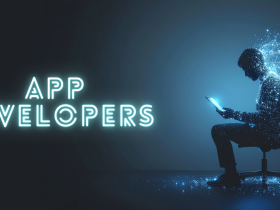The rise of artificial intelligence (AI) has revolutionised industries across the globe, and software testing is no exception. Traditional testing methods, while reliable, often struggle to keep pace with the demands of modern software development. Faster release cycles, complex architectures, and an increasing focus on security need more innovative and adaptive approaches. This is where AI for software testing is making a significant impact, introducing efficiency, accuracy, and scalability like never before.
Why Software Testing Needs AI
In today’s digital-first environment, businesses depend heavily on software performance. Whether in mobile apps or enterprise systems, even small defects can interrupt operations, cause financial losses, and harm brand reputation. While conventional manual testing is useful, it is often slow and susceptible to human mistakes. Automated testing helps, but even that requires constant updates and oversight as applications evolve.
This is where AI software testing comes in. AI not only automates repetitive tasks but also learns from data patterns, predicts defects, and adapts to changes in the system, ensuring faster and smarter testing cycles.
Applications of Artificial Intelligence in Software Testing
The integration of artificial intelligence in software testing has led to many applications that directly benefit developers, testers, and end-users.
- Test Case Generation and Optimization: AI can automatically generate test cases by examining historical data, user interactions, and changes in the code. It eliminates redundancy and ensures maximum coverage with minimal effort.
- Defect Prediction: Machine learning algorithms can predict areas of code most likely to fail, helping teams focus on high-risk modules before they cause issues.
- Visual Testing: AI tools can perform image-based testing, identifying discrepancies in user interfaces across devices and screen resolutions with greater accuracy than human eyes.
- Regression Testing: With each update or release, regression testing becomes vital. AI quickly identifies relevant test cases, reducing time spent on unnecessary checks.
- Continuous Learning: Unlike traditional systems, AI learns from every test cycle. Over time, it improves accuracy, reducing false positives and streamlining workflows.
AI-Powered Test Automation: The Next Frontier
The demand for speed and quality in software delivery has given rise to AI-powered test automation, a step beyond traditional automation frameworks. While earlier tools required predefined scripts, AI-driven automation adapts to code changes dynamically.
For example, when an application’s user interface changes, conventional automation scripts often break. AI-powered systems, yet can recognise the intent behind changes and update test scripts automatically. This simplifies maintenance, speeds up testing cycles, and boosts reliability.
Key benefits include:
- Reduced human intervention in repetitive tasks
- Self-healing test scripts
- Faster test execution
- Improved scalability for large and complex projects
Enhancing Security with AI and Penetration Testing
In an era of increasing cyber threats, functional testing alone is not enough. Security must be an integral part of the software testing process. AI is now being incorporated into vulnerability and penetration testing, providing more sophisticated methods to detect vulnerabilities and imitate real-world attack scenarios.
AI-driven penetration testing can:
- Speed up vulnerability detection by analyzing extensive codebases and configurations.
- Simulate sophisticated cyberattacks that evolve with time
- Prioritise vulnerabilities based on potential risk and impact
- Provide actionable insights for remediation
By incorporating AI into vulnerability and penetration testing, organisations can stay ahead of attackers and safeguard sensitive data.
Advantages of AI for Software Testing
The growing adoption of AI in testing is driven by its many benefits:
- Speed: Faster test execution shortens development cycles.
- Accuracy: Reduced human error improves defect detection.
- Adaptability: AI learns and evolves in response to changes in the application.
- Cost efficiency: Lower maintenance and faster releases conserve resources.
- Comprehensive coverage: Automated test generation ensures critical paths are tested.
- Enhanced security: AI identifies vulnerabilities that might be overlooked in manual testing.
Together, these benefits create a more efficient, secure, and reliable development lifecycle.
Challenges in Implementing AI for Testing
While the benefits are undeniable, adopting AI for software testing also presents challenges:
- Initial investment: Deploying AI-powered tools can be a significant expense.
- Skill gap: Testers may need training to work effectively with AI systems.
- Data dependency: AI depends greatly on high-quality data to make accurate predictions.
- Complexity: Integration with existing systems requires careful planning.
Despite these hurdles, the long-term advantages outweigh the initial obstacles, making AI adoption an inevitable step for forward-thinking organisations.
Future of AI in Software Testing
The role of AI in testing is still evolving. In the future, we can expect:
- Hyper-automation: Fully autonomous testing pipelines requiring minimal human intervention.
- Predictive analytics: Greater accuracy in forecasting defects before code is deployed.
- AI-driven security frameworks: Stronger emphasis on combining AI software testing with proactive security measures.
- Cross-platform intelligence: Enhanced ability to test seamlessly across mobile, web, IoT, and cloud systems.
As AI becomes more sophisticated, its role in testing will expand beyond efficiency, becoming a critical driver of innovation and security.
The integration of artificial intelligence in software testing has transformed the way software is built, tested, and delivered. With advancements like AI powered test automation, organisations can achieve faster releases, reduced errors, and improved user experiences. At the same time, combining AI with vulnerability and penetration testing ensures that applications are not only functional but also secure.
For businesses aiming to stay competitive in the digital era, adopting AI software testing is no longer an option but a necessity. The move toward smarter, adaptive, and secure testing foresees a future where software is produced more quickly, safely, and with maintained quality.







